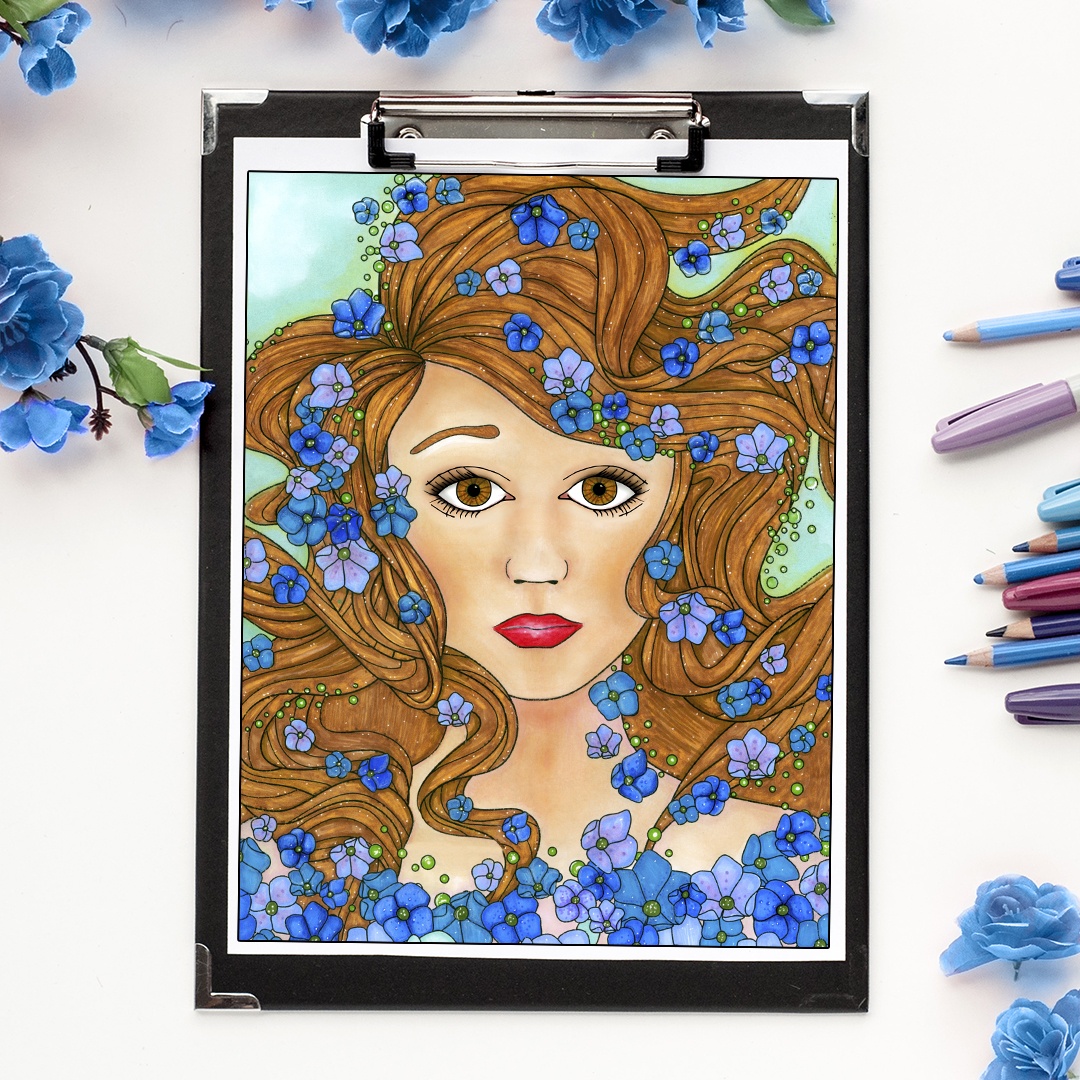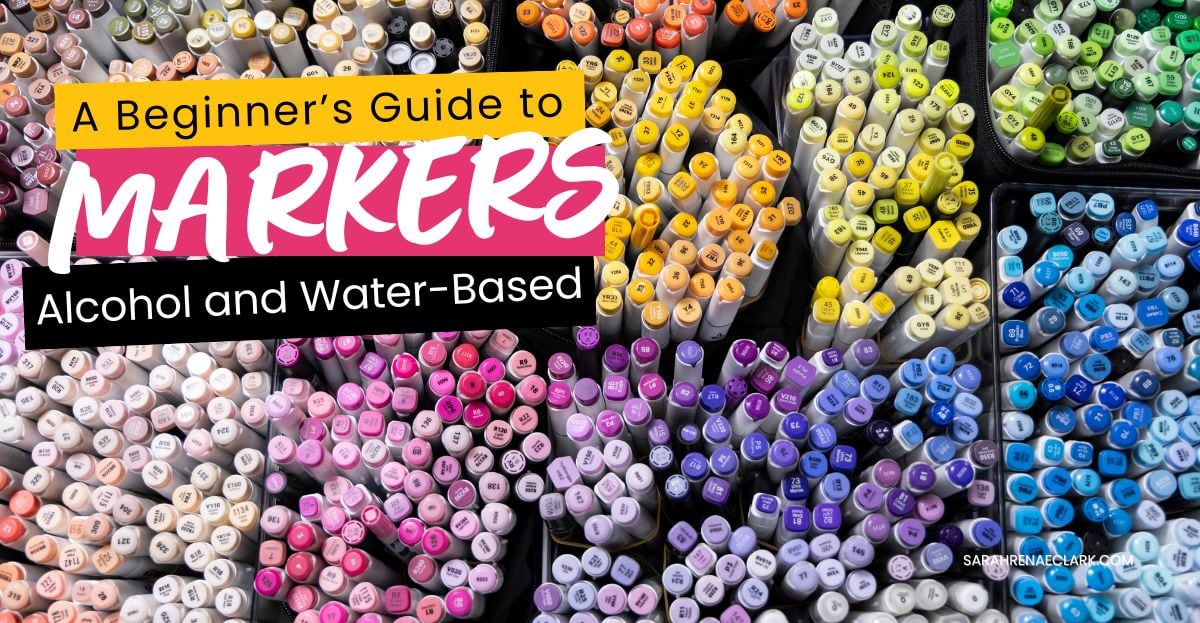This is the final post in my three-part series on How to Color Skin Tones.
Here are the first two posts if you’ve missed them:
Part One: General Tips for Coloring Skin
Part Two: Skin Coloring Techniques with Pencils
In this post, I’ll show you 5 videos on skin coloring techniques with colored markers. You’ll notice most of the videos are for Copic markers, because they are great for blending, which is essential for coloring skin. Other alcohol-based markers can produce similar results, but I’ve also included a video at the end to show you how you can work with cheap markers to still create a good result.
I’ve included my favorite tips from each video, the difficulty level and a list of the tools they have used so that you can find the video that will suit your coloring skill level and what you would like to learn.
Reminder: To get the most of out this post, Pin it so you can use it as a reference and come back anytime.
Disclaimer: This post contains affiliate links and I may earn a commission if you click them and make a purchase. This is at no cost to you and I only recommend products that I love.
Tutorial #6: How to color skin with Copic Markers
This video is great for Copic beginners and produces a beautiful result. The artist shows us how to create two different skin tones using Disney character illustrations and gives some great tips on shadows, light sources and blending.
Difficulty Level: Beginner to intermediate
Tutorial length: 9 mins
Tools used: Copic Markers skin tone starter pack
What I learned:
1.Take a scrap piece of paper to experiment with colors and blending.
2. You don’t always need a colorless blender to blend between colors.
Tutorial #7: How to color skin with Copic
This video shows how to color an anime face using Copic markers, with a pink pencil for extra shadows. The results are great, and would work on a realistic face too. This video isn’t narrated, but subtitles explain each step in detail and provide handy tips.
Difficulty Level: Intermediate
Tutorial length: 13 mins
Tools used: Copic Ciao Markers and Faber-Castell Polychromos (Pink only)
What I learned:
1. Draw fast so the alcohol markers don’t dry between layers.
2. Try to color lightly to avoid the color coming out too dark.
Tutorial #8: Copic tutorial coloring skin tones with Vicku McCarthy
In this video, Sally walks us through how to color a face (from the side) with Copic markers. This tutorial is easy to follow, with plenty of tips throughout, but produces a beautiful result. …And it’s always nice to hear another Aussie accent!
Difficulty Level: Beginner
Tutorial length: 26 mins
Tools used: Copic markers and Copic colorless blender
What I learned:
1. Spend the time to keep blending until it looks right (don’t rush).
2. Rotate your page as you go so you can color comfortably.
3. Start with the lightest colors first and build from there.
Tutorial #9: How to colour skin with copic markers
This is a good video to learn about working in layers, blending and pressure when working with Copic markers. The video starts with three markers, but there are actually a number of other markers and tools not mentioned in the description. She also teaches us how to use a white gel pen and white pencil for extra highlights. Note that this video is shot in portrait mode, so it’s easier to watch on a mobile phone or tablet than a desktop computer.
Difficulty Level: Intermediate to advanced
Tutorial length: 27 mins
Tools used: Copic markers, white Prismacolor pencil, and white Gelly Roll gen pen
What I learned:
1. Work fast so the markers don’t dry before blending.
2. Use a white pencil or gel pen to add highlights.
Tutorial #10: Cheap art supply challenge
This video is for everyone who can’t afford expensive alcohol markers! In this video, Kimberly colors a face and hair with cheap Crayola markers and a few other cheap supplies. She shows some great blending techniques and produces a surprisingly good result.
Difficulty Level: Intermediate
Tutorial length: 20 mins (Coloring starts after 8 mins)
Tools used: Crayola Supertips, Crayola brush pens, and other general supplies
What I learned:
1. Use water on a cotton swab to blend your water-based markers and create gradients.
2. Use baby oil to seal the artwork underneath and reduce paper damage.
Thank you for reading. I hope you’ve found these tips useful! If you have any other tips or questions, please include them in the comments below.
Don’t forget to Pin this for later!
Previous posts:
How to Color Skin Tones | Part One: General Tips for Coloring Skin
How to Color Skin Tones | Part Two: Skin Coloring Techniques with Pencils











I really got hooked on this website so much to learn but too little time. One step at a time is the only way to achieve my goal. to keep learning. Thank You for all the wonderful advice and help.